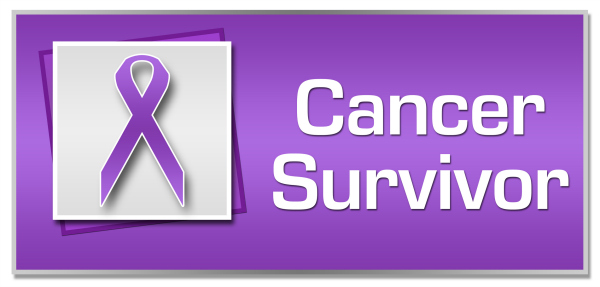
In 2016, the American Cancer Society (ACS) reported that there are over 15.5 million cancer survivors in the United States. And that number is expected to increase to 20 million by 2026.
But who, exactly, are cancer survivors?
You might respond by saying that cancer survivors have simply survived their cancer. And while that is true, there is often more to the story.
Surviving cancer is more than recovering from a difficult disease:
- It can mean coping with the physical repercussions of the illness or treatment, like when a man faces erectile dysfunction after prostate cancer treatment or when a woman goes through surgical menopause after her ovaries are removed.
- It can mean adapting to changing relationships, like when a child cares for a parent or when a spouse cares for a partner.
- It can mean accepting changes in fertility and exploring new family-planning options, like sperm banking, in vitro fertilization, or adoption.
- It can mean asking for help – from a colleague, a friend, a relative, a counselor, or a healthcare provider.
- It can mean navigating new social situations, like when a woman meets a new partner, but feels anxious about her body after mastectomy.
- It can mean adjusting one’s work schedule to accommodate treatment scheduling, follow-up appointments, or fatigue.
- It can mean putting on a brave face and accepting the “new normal” when one is frightened of recurrence or anxious about the future.
- It can mean creating a new budget to cover medical expenses or to make up for a financial shortfall during treatment.
These are just some examples. Ultimately, the definition of cancer survivor is up to the individual.
Dr. Melanie Bone, a breast cancer survivor, put it this way:
As I considered the various definitions of survivor I encountered during this time, I came to realize that survivorship is highly individual. There are some survivors who, having just recently completed treatment, are well adjusted to their diagnosis and move forward like 10-year survivors. Conversely, there are some survivors who, at 15 years out, struggle with issues similar to patients still in the midst of initial treatment.
The ACS defines survivors as “everyone who’s ever had cancer, from the time of diagnosis for the rest of their life.”
Here at SexHealthMatters, we agree. Our definition includes people with chronic illness, those in remission, and those who are cancer-free. It includes people who survive the cancer itself and those who are surviving the smaller - but just as important – cancer challenges every day.
Resources
American Cancer Society
“ACS Report: Number of US Cancer Survivors Expected to Exceed 20 Million by 2026”
(June 2, 2016)
https://www.cancer.org/latest-news/report-number-of-cancer-survivors-continues-to-grow.html
AWomansHealth.com
Bone, Melanie, MD, PA
“When Does Survivor Status Start?”
http://awomanshealth.com/when-does-survivor-status-start/
Cancer.net (American Society of Clinical Oncology)
“About Survivorship”
(July 2016)
http://www.cancer.net/survivorship/about-survivorship
Mayo Clinic
Broderick, Gregory A., MD
“Sexual Function in Male Cancer Survivors”
(Presentation slides. May 12, 2017)
Provided by presenter.
National Coalition for Cancer Survivorship
“Defining Cancer Survivorship”
(July 24, 2014)
https://www.canceradvocacy.org/news/defining-cancer-survivorship/
You may also be interested in...
Other Popular Articles

What Is the Average Penis Size?
If you have ever wondered how your penis compares to others in terms of size, you are not alone. Many men are curious to know how their penises stack up compared to the average. Unfortunately, general curiosity can sometimes give way to full-on obsession and anxiety about penis size. This can be an unhealthy and often unnecessary fixation, especially because most men who think their penises are too small have perfectly normal-sized penises.

What Is Jelqing, and Does It Actually Work?
The term “jelqing” refers to a set of penis stretching exercises that some believe can make the penis bigger. Although the practice has gained attention and popularity in blogs and internet forums in recent years, there is no scientific evidence that it is an effective way to permanently increase the size of one’s penis. In fact, in some cases, jelqing may actually cause damage to the penis, so it is a good idea to get all the facts before setting off to try it.

What Is Sensate Focus and How Does It Work?
Sensate focus is a technique used to improve intimacy and communication between partners around sex, reduce sexual performance anxiety, and shift away from ingrained, goal-oriented sexual patterns that may not be serving a couple.

Can Sex Reduce Menstrual Cramps?
The SMSNA periodically receives and publishes ‘guest editorials.’ The current article was submitted by Mia Barnes, a freelance writer and researcher who specializes in women's health, wellness, and healthy living. She is the Founder and Editor-in-Chief of Body+Mind Magazine.
Having sex while you experience menstrual cramps is healthy and can provide significant benefits. While it might not be the first activity that comes to mind when your PMS or period cramping begins, many people enjoy sex to reduce menstrual cramps, experience increased pleasure and benefit from other advantages. Learn more about having sex while menstrual cramps are happening and how it can help your body.

How Long Does It Take the Average Man to Ejaculate?
On average, it takes a man between 5 to 7 minutes to orgasm and ejaculate during sexual intercourse.

The Effect of Regular Aerobic Exercise on Erectile Function
Erectile dysfunction (ED) is the inability to achieve or maintain an erection sufficient for satisfactory sexual activity. As men get older, their erectile functioning may naturally decline due to changes in testosterone levels, cardiovascular functioning, and the potential development of other chronic medical conditions that become more common with age.
You are prohibited from using or uploading content you accessed through this website into external applications, bots, software, or websites, including those using artificial intelligence technologies and infrastructure, including deep learning, machine learning and large language models and generative AI.

